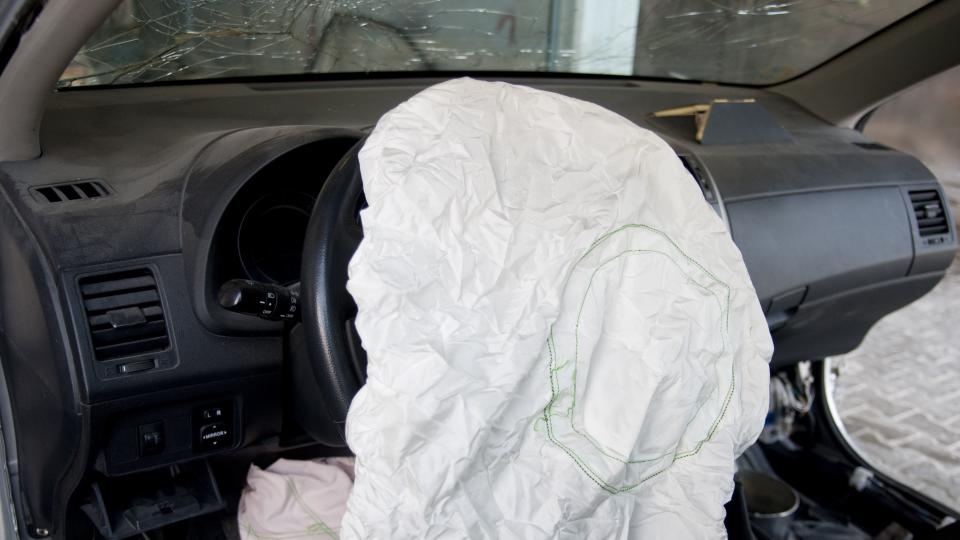NHTSA May Force Recall of 52 Million ARC Car Airbag Inflators

Millions of airbag inflators could be deemed defective as early as next year as NHTSA calls for a massive recall of as many as 52 million of the safety items.
At least nine ruptures and two deaths have occurred, and the safety agency has been investigating the issue since 2015.
The maker, ARC, denies manufacturing defects, while three automakers have issued recalls.
The U.S. government safety agency NHTSA has said it is preparing for a recall next year of 52 million airbag inflators that can rupture during deployment. This opens the door to the prospect of what could become another complicated, decade-long repair of defective airbags in tens of millions of vehicles.
In a public meeting held Thursday in Washington, D.C., the National Highway Traffic Safety Administration (NHTSA) discussed its decision that two airbag inflator manufacturers, ARC Automotive and Delphi Automotive Systems, should recall inflators that explode with excess pressure and shoot shrapnel into the frontal occupants. NHTSA has investigated ARC inflators since July 2015 after receiving reports of ruptures on two vehicles shortly after the Takata airbag recall began unfolding in 2014. The Takata recall repairs, which are still not fully complete, began with isolated, small recalls on early-2000s Hondas and grew to 100 million inflators across the world, two-thirds of which resided in U.S.-market cars. At least 27 people in the U.S. were killed and 400 injured, according to NHTSA.
According to the agency’s initial decision in September, which is the first step in starting a recall, there have been seven inflator ruptures in U.S. crashes since 2014. One driver was killed after a crash in a 2015 Chevrolet Traverse in which metal shards flew out. All other drivers, including one passenger, were injured primarily in the face. A second driver was killed in a 2009 Hyundai Elantra during a 2016 crash in Canada, while a passenger-side airbag inflator ruptured in Turkey a year later on a 2015 Volkswagen Golf that used an ARC inflator built in Tennessee.
Four of the incidents involved a Traverse, the latest of which occurred on March 22, 2023. General Motors in May recalled nearly one million vehicles, some of which were the Traverse, for this defect. A 2002 Chrysler Town & Country, 2004 Kia Optima, and 2016 Audi A3 e-tron were also cited for ruptures in crashes. BMW began a recall for this defect in 2017, while Volkswagen initiated a recall in 2022.
1-in-370,000 Chance of Rupture
"Ruptures will continue to happen," said Bruce York, a division chief at the NHTSA Office of Defects Investigation, at the public hearing. The agency estimates, based on 2.6 million reported deployments of ARC inflators, that the risk of ruptures during future crashes would be 1 in 370,000.
Steve Gold, vice-president of product integrity for ARC, said the seven U.S. ruptures were "isolated incidents and not indicative of a systemic defect." He called the agency's comparison of ARC inflators to Takata inflators as "inaccurate and misleading" because those inflators were largely affected by humidity and age and that seven known defects in 23 years of production "does not represent increased risk over time."
The alleged defects, according to NHTSA, involve a manufacturing defect where "excess weld slag" on the metal seam caused by joining parts of the inflator together can block the gas flow to the bag, building excess pressure and causing the entire inflator to rupture. This can result in "metal fragments being forcefully propelled into the passenger compartment," according to NHTSA.
The agency issued a standing order to ARC in 2016 so the company would report ruptures during manufacturing and in 2018, ARC began using borescopes to "detect the occurrence of excess weld slag or other debris in its inflators." While ARC ran tests in 2018 of more than 900 inflators taken from 2001-2005 model year cars in salvage yards and found no ruptures, automakers reported ruptures in 2021 and 2023, according to NHTSA. The 52 million number, according to NHTSA, was calculated for all airbag inflators ARC and Delphi made before using the borescopes.
Gold said ARC is a Tier 2 supplier and not legally responsible for initiating recalls like an automaker. But NHTSA said in its September initial decision letter that ARC is not exempt from complying with federal safety regulations.
Six class-action lawsuits alleging economic harm were filed in 2022 against ARC, various automakers, and two airbag manufacturers that used ARC inflators (Joyson Safety Systems, formerly known as Key Safety Systems which bought out Takata, and Toyoda Gosei). They have been combined under federal judicial review. One lawsuit filed in Northern California alleged that because the inflators used ammonium nitrate, a low-cost propellent found to be highly unstable and a root cause of the Takata failures, that ARC was inherently at fault. But NHTSA has not cited ammonium nitrate as a failure point or a root cause in its investigations.
NHTSA is accepting written responses to its hearing by December 4, after which it will likely release a final decision to issue a recall.
You Might Also Like

 Yahoo Autos
Yahoo Autos 